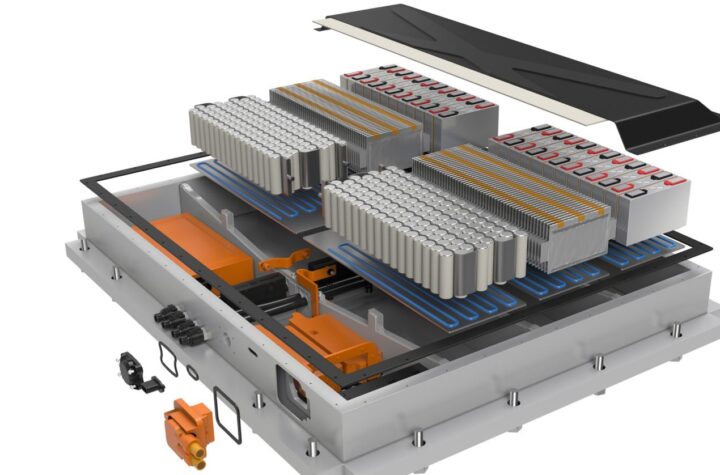
In this Automotive Industries (AI) interview, Jamie Broome, Chief Product Officer, Codasip, delves into the transformative role of custom computing solutions for the automotive industry. Codasip, a leader in RISC-V processor cores, is driving innovations in safety, security, and performance. With safety-critical applications in focus, Broome emphasizes the significance of certifications like ISO 26262, showcasing Codasip’s commitment to meeting the highest standards of automotive safety and reliability.
A key theme in this discussion is the growing importance of Custom Compute in enabling OEMs to differentiate their products. As the automotive industry evolves, companies are moving away from standardized components, instead opting for custom solutions that address specific use case requirements. Broome highlights how industry giants such as Amazon, Apple, and Tesla are leading this shift, a trend Codasip is enabling with its customizable RISC-V processors.
Another notable innovation discussed is Codasip’s implementation of CHERI (Capability Hardware Enhanced RISC Instructions), a groundbreaking technology aimed at addressing memory safety vulnerabilities that have plagued the industry for years. Broome explains how CHERI’s fine-grained memory protection has the potential to greatly enhance automotive cybersecurity, an increasingly critical concern as modern vehicles become more connected and autonomous.
In this interview, Broome offers valuable insights into the future of automotive processing, security, and Codasip’s unique position in the market.
Automotive Industries (AI) interview with Jamie Broome, Chief Product Officer, Codasip
Automotive Industries: Hi Jamie, what is the significance of this certification for OEMs and Tier suppliers?
Broome: As an IP vendor, prioritizing safety considerations is crucial because our processors often serve as the backbone of E/E systems. Whether our CPU is executing safety-critical code or dedicated safety functions, ensuring processor integrity is vital for functional safety.
IP vendors like us face a critical decision regarding the sale of our IP cores: whether to offer them with ASIL assurance only or pursue third-party ASIL certification. Offering IP without ASIL certification allows for flexibility and speed in development, facilitating faster market entry but shifts ASIL certification responsibility to SoC integrators. Conversely, undergoing third-party ASIL certification showcases commitment to safety standards, providing customers with added confidence in the IP core’s reliability for automotive safety-critical applications. While this route may demand more time and investment initially, we see it as important to adhere to the needs of our customers prioritizing safety and compliance.
Automotive Industries: How does Custom Compute help OEMs to differentiate the products?
Broome: OEMs are continually challenged to deliver innovative products that meet evolving customer needs. Innovation is paramount, and the choice of computing solutions profoundly influences an OEM’s success. Traditionally, OEMs have relied on system suppliers or fabless semiconductor companies for computing solutions. However, using standardized components limits differentiation to software alone.
Increasingly, companies, including Amazon, Apple, and Tesla, are opting to develop custom chips instead of relying on off-the-shelf parts. This shift is driven by the inadequacies of standard components, which may lack integration, fail to meet specific use case requirements, lack desired features, or include unnecessary functionalities. Custom Compute represents the next phase of evolution and is gaining considerable traction.
Automotive Industries: Please tell us more about your holistic approach to safety and security.
Broome: Mary Berra, CEO of GM said: Without security, there is no safety. Would you want to be safe, but not secure? Or secure but not safe? Though safety is generally improving, cybersecurity threats are on the rise. The automotive industry is renowned for prioritizing customer safety, especially with the advancements in ADAS and autonomous vehicles.
In contrast, cybersecurity was initially niche, linked to military and financial sectors, but has become pervasive across commercial and consumer domains in recent decades. Every company, particularly OEMs, must address safety and security risks, heavily relying on their supply chain. A holistic, integrated approach is crucial, ensuring semiconductor devices meet safety and security requirements. We provide tailored processors designed to be both safe and secure for your specific use case. what we’ve been able to achieve has been phenomenal here at Coda. It really was rife in Europe to build the process and process competency for automotive supply. I’m biased. I work here, but I’m genuinely amazed at what we’ve been able to do in these two years.
Automotive Industries: In October 2023 Codasip introduced the first licensable implementation of the memory protection technology CHERI. What is CHERI?
Broome: For the past decade, the University of Cambridge has been developing Capability Hardware Enhanced RISC Instructions (CHERI), aiming to achieve fine-grained memory protection and scalable compartmentalization. This project integrates both hardware and software components. CHERI is designed to be independent of Instruction Set Architecture (ISA), with experimental versions created for MIPS, Arm v8-A, and RISC-V by the University of Cambridge. Implementing CHERI requires additional instructions and microarchitectural features to manage capabilities. Introducing CHERI into an existing processor architecture exemplifies Custom Compute, which is a primary factor behind our success in implementing CHERI to our cores.
Automotive Industries: Why is CHERI important for the auto industry?
Broome: Each year, Microsoft conducts a thorough analysis of cyberattacks, compiling a list of vulnerabilities reported through the Common Vulnerabilities and Exposures (CVE) system. Remarkably, approximately 70% of these vulnerabilities stem from memory safety issues and this has been the case for many years. The innovative approach of CHERI technology reexamines fundamental design principles in both hardware and software domains. By addressing these core issues, CHERI holds the promise of effectively mitigating such vulnerabilities and substantially enhancing overall system security.
Automotive Industries: What differentiates your RISC-V processor cores from others in market place?
Broome: We specialize in Custom Compute solutions by leveraging the open standard RISC-V ISA, Codasip Studio processor design automation, and top-tier processor IP. Our approach facilitates seamless customization, empowering you to create unique and high-performance products. Codasip Studio modifies an existing processor design or creates a brand-new core. It covers every aspect of the design process, generating a complete SDK and HDK. On top of that, we use strong verification technology and techniques to ensure our IP is best-in-class.
Unlike conventional methods, our Custom Compute approach empowers you to fully leverage the freedom RISC-V provides. We’re pioneering a shift in processor design, offering an alternative to conventional practices.
Automotive Industries: Where to next for vehicle security and Codasip?
Broome: In February, we announced that our IP hardware engineering development processes, guidelines, and work instructions had been assessed and certified by TÜV SÜD.
We have now also successfully completed the functional safety assessment by TÜV SÜD to receive our first ISO 26262 product certification for our L31AS core. We will continue to certify key parts of our product portfolio. We will also continue our focus on CHERI because we believe strongly in its potential for actively preventing the most common cyberattacks with minimal impact on performance.
Automotive Industries: What percentage of Coda business is targeted at automotive?
Broome: I love that question. So I can answer quite confidently that 100% of what we do is capable of being deployed into automotive, and that is very different to any other IP supplier in the market today. One of the things that I managed to achieve over the last two years is – if you think about us as having a production line, our production line is capable of creating automotive cores and that’s it, and that’s unique! We don’t have two production lines. Typically not what you see from our competitors who have the commercial product line and then there’s the automotive product line where they do extra stuff. Well, we don’t have two different product lines. We have one process product line, which means everything we do can be built into an automotive grade. And that’s something we’ve achieved over these two years. And we’re starting to see this now with the certification. Certifications are just proofs really.
OEMs close safety and security themselves. But by creating the certification proofs of both your production line, which is the process certification and then of products, what we’re seeing with L31 that we’ve physically certified. So that’s a bit like your safety stamp on your kids swing. We’ve actually certified the product. So not only with the kids swing built in a factory that was safe. The swing itself has been tested and has been proven safe against the criteria. So we’ve done dual steps. Most other IP companies just say the production line is capable of being safe. They don’t go and actually say, well, we’ve actually gone through and used the production line to create a product.










More Stories
The Advantages of Cloud-Based Fax Software for Businesses
40 YEARS OF SILICONE GROWTH IN AMERICA
DuPont materials science advances next generation of EV batteries at The Battery Show